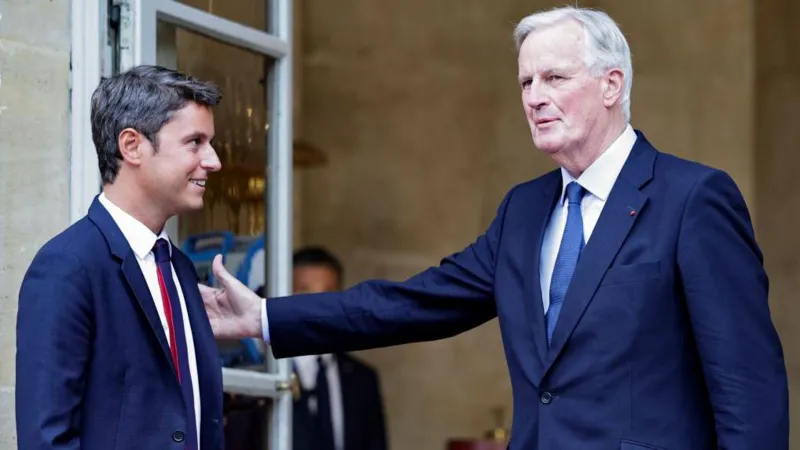Barnier Becomes France’s New Prime Minister Amid Political Unrest
Michel Barnier, a seasoned French conservative, has been named the new Prime Minister of France, succeeding Gabriel Attal. Barnier, known for his role as the EU’s chief Brexit negotiator, steps into the role after France’s snap elections led to a political deadlock nearly two months ago. He took over the position from Attal, who had been in office for eight months.
Barnier’s primary task will be to create a government that can work effectively with a National Assembly divided into three major political blocs. He plans to address the country’s financial and environmental issues openly and work towards unity and respect among political forces. His appointment comes after President Emmanuel Macron took time to consult with various political groups following the Paris Olympics.
Despite his experience and political skills, Barnier faces a challenging political landscape. The centre-left Socialists have already signaled they may challenge his appointment. Barnier’s success will largely depend on his ability to navigate these challenges and secure support in the National Assembly, where he needs to win a confidence vote.
The appointment has sparked criticism, particularly from the New Popular Front (NFP), which feels sidelined despite having the most votes in the recent elections. Jean-Luc Mélenchon, a leader of the NFP, has labeled the appointment as unfair and is calling for protests.
Barnier’s immediate challenge will be to push through France’s 2025 budget by October 1, a task that will require significant political maneuvering. His nomination has already been met with mixed reactions from various political factions, including a notable absence of support from Marine Le Pen’s National Rally party.
As Barnier steps into his new role, he will need to balance the diverse political interests of France while addressing pressing national issues. His success or failure in this role could significantly impact France’s political future.
Credit : BBC
https://www.bbc.com/news/articles/cqjlxvg2gj7o

